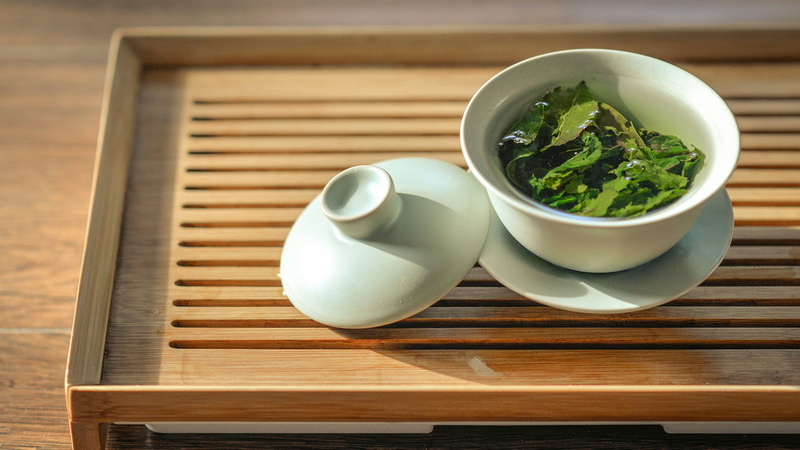Content Menu
● Understanding Green Tea Extract
>> What is Green Tea Extract?
>> Composition and Active Ingredients
>> Forms of Green Tea Extract
● Health Benefits of Green Tea Extract
>> Antioxidant Properties
>> Heart Health
>> Brain Health
>> Weight Loss
>> Liver Health
>> Blood Sugar Regulation
>> Skin Health
>> Other Potential Benefits
● Dosage and Consumption
>> Recommended Dosage
>> Forms of Supplementation
>> Potential Side Effects and Risks
● Scientific Studies and Research
>> Meta-Analysis and Systematic Reviews
>> Key Findings from Research
● Practical Tips for Incorporating Green Tea Extract
>> Choosing the Right Supplement
>> Integrating into Daily Routine
>> Comparing Green Tea Extract with Green Tea
● Conclusion
● FAQ About Green Tea Extract
>> 1. What are the main benefits of green tea extract?
>> 2. How much green tea extract should I take daily?
>> 3. Are there any side effects of taking green tea extract?
>> 4. Can green tea extract help with weight loss?
>> 5. Is it better to drink green tea or take green tea extract?
● Citations:
Green tea is one of the most consumed beverages worldwide, and green tea extract is its concentrated form[1]. Just one capsule of green tea extract can contain the same amount of active ingredients as an average cup of green tea[1]. Like green tea, green tea extract is a rich source of antioxidants, offering a range of health benefits, including promoting heart, liver, and brain health, improving skin, and reducing cancer risk[1]. Many weight loss products include green tea extract as a key ingredient, owing to its potential to aid weight loss[1].
Despite these benefits, it is crucial to be aware that green tea extract can be toxic if taken in excess. Therefore, consulting a healthcare professional is essential before incorporating these supplements into your routine[1].

Understanding Green Tea Extract
What is Green Tea Extract?
Green tea extract is derived from the *Camellia sinensis* plant, the same plant that is used to make green tea[3][4]. The extract is a concentrated form of the tea, containing a high amount of polyphenols, which are antioxidants[1]. The primary polyphenol in green tea extract is epigallocatechin gallate (EGCG), which is responsible for many of its health benefits[1].
Composition and Active Ingredients
The health benefits of green tea extract are primarily attributed to its high antioxidant content[1]. Antioxidants help reduce oxidative stress in the body by protecting against cell damage caused by free radicals[1]. This cell damage is associated with aging and various diseases[1]. Polyphenol antioxidants, known as catechins, constitute the majority of green tea extract's antioxidant content. Among these catechins, epigallocatechin gallate (EGCG) is the most extensively researched and is believed to offer the most significant health benefits[1].
Forms of Green Tea Extract
Green tea extract is available in various forms, including capsules, liquids, and powders[1]. The recommended dosage typically ranges from 250 to 500 mg, taken with food[1].
Health Benefits of Green Tea Extract
Antioxidant Properties
Green tea extract is rich in catechins, which have been shown to increase antioxidant capacity and protect against oxidative stress[1]. Studies indicate that green tea extract boosts the body's antioxidant capacity, enhancing the activity of the body's antioxidant enzymes and providing protection against oxidative stress. This can help prevent associated health issues[1].
For example, a 2012 study involving 35 individuals with obesity found that taking 870 mg of green tea extract for eight weeks increased their blood antioxidant capacity from 1.2 to 2.5 micromoles per liter (μmol/L) on average[1].
Heart Health
The catechins found in green tea may help lower blood pressure and improve blood fat levels, thereby promoting heart health[1]. The antioxidants in green tea extract can reduce inflammation and help lower blood pressure. They can also inhibit fat absorption in cells, which helps reduce blood fat levels[1].
A 2012 study involving 56 obese individuals with high blood pressure found that taking 379 mg of green tea extract daily for three months led to a significant decrease in blood pressure compared to the placebo group[1]. Additionally, participants experienced significant reductions in blood fat levels, including lower triglycerides and total and LDL (bad) cholesterol[1].
Brain Health
The antioxidants present in green tea extract, particularly EGCG, have been shown to protect brain cells from oxidative stress[1]. This protection can help reduce brain damage that could lead to mental decline and brain diseases such as Parkinson's, Alzheimer's, and dementia[1]. Green tea extract can also reduce the action of heavy metals like iron and copper, both of which can damage brain cells[1].
A study conducted in 2014 found that green tea extract can help improve memory by enhancing the connection between different parts of the brain[1]. In this study, 12 participants consumed a soft drink containing either 27.5 grams of green tea extract or a placebo. Brain images were then taken while the participants performed memory tests to assess brain function. The green tea extract group exhibited increased brain function and improved task performance compared to the placebo group[1].
Weight Loss
Green tea extract is rich in catechins and contains a substantial amount of caffeine[1]. This combination of ingredients appears to be responsible for the modest weight loss properties of green tea extract[1]. Green tea extract supplementation can attenuate body mass, body fat percentage, and BMI, which are thought to negatively affect human health[2].
Liver Health
Green tea extract has been shown to help keep the liver healthy, thanks to its high antioxidant content[1].
Blood Sugar Regulation
Studies suggest that green tea extract can help lower blood sugar levels[1][7]. Consuming green tea extract for four weeks can reduce blood sugar levels and improve gut health by lowering inflammation and decreasing “leaky gut”[7]. A meta-analysis on 17 arms of clinical trials proposed a significant decrease in HbA1c following green tea supplementation[5].
Skin Health
Green tea extract is beneficial for skin health because of its antioxidant properties[6]. Studies show that it can help reduce acne and help aging skin reclaim some of its lost glow[6].
Other Potential Benefits
-Cancer Prevention: Green tea with antioxidants delivers many health benefits, such as preventing cancer[4]. EGCG has been observed to have a role in cancer chemoprevention[4].
-Exercise Recovery: Green tea extract can promote exercise recovery[1].
-Antimicrobial Effects: Green tea and felty germander have antimicrobial effects for oral health[3].
-Cardiovascular Health: Green tea extract can improve cardiovascular disease risk factors[3].

Dosage and Consumption
Recommended Dosage
The recommended dose of green tea extract is generally between 250 and 500 mg per day[1]. It is best to take green tea extract with food to avoid potential liver damage[1].
Forms of Supplementation
Green tea extract is available in capsule, liquid, and powder forms[1]. Choose supplements that have been analyzed by an independent lab to verify purity and content, as supplements are not FDA regulated to ensure safety[1]. Ensure that the supplement you are consuming contains EGCG, the catechin most closely linked to the health benefits of green tea extract[1].
Potential Side Effects and Risks
Caution should be exercised when taking green tea extract, as adverse effects have been reported[3]. These adverse effects include gastrointestinal and liver distress[3]. Excessive caffeine from green tea extract can lead to heart palpitations, high blood pressure, anxiety, and other issues[6]. Overdoing it on green tea extract has been linked to liver problems[6]. It is important not to exceed the recommended dose, as both exceeding the recommended dose and taking it on an empty stomach may cause serious liver damage[1].
Scientific Studies and Research
Meta-Analysis and Systematic Reviews
Numerous studies and meta-analyses have been conducted to evaluate the effects of green tea extract on various health outcomes[2][5]. These studies often involve randomized controlled trials (RCTs) that investigate the effects of green tea supplementation on markers such as body composition, oxidative stress, obesity-related hormones, and cardiovascular risk factors[2][5].
Key Findings from Research
Research suggests that green tea extract supplementation can attenuate oxidative stress, body mass, BMI, and body fat percentage[2]. It can also increase total antioxidant capacity and adiponectin[2]. Green tea supplementation can lead to improvements in lipid and glycemic profiles[5].
Practical Tips for Incorporating Green Tea Extract
Choosing the Right Supplement
When selecting a green tea extract supplement, it is important to consider the following:
-EGCG Content: Ensure the supplement contains a significant amount of EGCG, the primary catechin responsible for many of the health benefits[1].
-Third-Party Testing: Opt for supplements that have been tested by an independent lab to verify purity and content[1].
-Form: Green tea extract is available in capsule, liquid, and powder forms, so choose the form that best suits your preferences[1].
Integrating into Daily Routine
Incorporate green tea extract into your daily routine by:
-Taking it with food: This can help prevent potential liver damage[1].
-Following recommended dosage: Adhere to the recommended dosage of 250-500 mg per day[1].
-Consulting with a healthcare professional: Before starting any new supplement, consult with a healthcare provider, especially if you have existing health conditions or are taking other medications[1].
Comparing Green Tea Extract with Green Tea
While both green tea and green tea extract offer health benefits, there are some key differences to consider:
-Concentration: Green tea extract is a concentrated form of green tea, meaning it contains a higher amount of active ingredients[1].
-Convenience: Green tea extract is available in supplement form, making it a convenient option for those who may not have the time or desire to brew green tea regularly[1].
-Potential Side Effects: Green tea extract may have a higher risk of side effects if taken in excess due to its concentrated nature[1].
Conclusion
Green tea extract offers numerous potential health benefits, primarily due to its high antioxidant content. These benefits include promoting heart, brain, liver, and skin health, as well as aiding in weight loss and blood sugar regulation. While green tea extract can be a valuable addition to a healthy lifestyle, it is important to use it safely and responsibly. Consulting with a healthcare professional before starting any new supplement is essential to ensure it is appropriate for your individual health needs.

FAQ About Green Tea Extract
1. What are the main benefits of green tea extract?
Green tea extract is known for its antioxidant properties, which can help protect against cell damage and reduce the risk of chronic diseases[1]. It may also support heart health by lowering blood pressure and improving cholesterol levels[1]. Additionally, it has been linked to improved brain function, weight loss, and better skin health[1][6].
2. How much green tea extract should I take daily?
The recommended dosage of green tea extract is generally between 250 and 500 mg per day[1]. It's best to take it with food to minimize the risk of liver damage[1]. Always follow the instructions on the product label or consult with a healthcare professional for personalized advice[1].
3. Are there any side effects of taking green tea extract?
Yes, there are potential side effects[3]. Some people may experience gastrointestinal issues, such as stomach upset or diarrhea[3]. In rare cases, high doses of green tea extract have been linked to liver problems[6]. Excessive caffeine intake from green tea extract can also lead to heart palpitations, anxiety, and high blood pressure[6].
4. Can green tea extract help with weight loss?
Green tea extract may support weight loss due to its catechins and caffeine content, which can boost metabolism and increase fat burning[1]. However, it's not a magic bullet and works best when combined with a healthy diet and regular exercise[1].
5. Is it better to drink green tea or take green tea extract?
Both green tea and green tea extract offer health benefits, but they have different advantages[1]. Drinking green tea is a natural way to consume antioxidants and other beneficial compounds without the concentrated dose found in extracts[6]. Green tea extract provides a more potent dose of these compounds in a convenient form, which can be useful for those looking for targeted support[1]. However, it's important to be mindful of the potential side effects and dosage when taking extracts[6].
Citations:
[1] https://www.healthline.com/nutrition/10-benefits-of-green-tea-extract
[2] https://pubmed.ncbi.nlm.nih.gov/38031409/
[3] https://examine.com/supplements/green-tea-extract/
[4] https://pmc.ncbi.nlm.nih.gov/articles/PMC6412948/
[5] https://www.frontiersin.org/journals/nutrition/articles/10.3389/fnut.2022.1084455/full
[6] https://health.clevelandclinic.org/green-tea-extract-a-better-way-to-boost-energy-or-not
[7] https://ehe.osu.edu/news/listing/green-tea-extract-promotes-gut-health-lowers-blood-sugar
[8] https://www.webmd.com/vitamins/ai/ingredientmono-960/green-tea






























